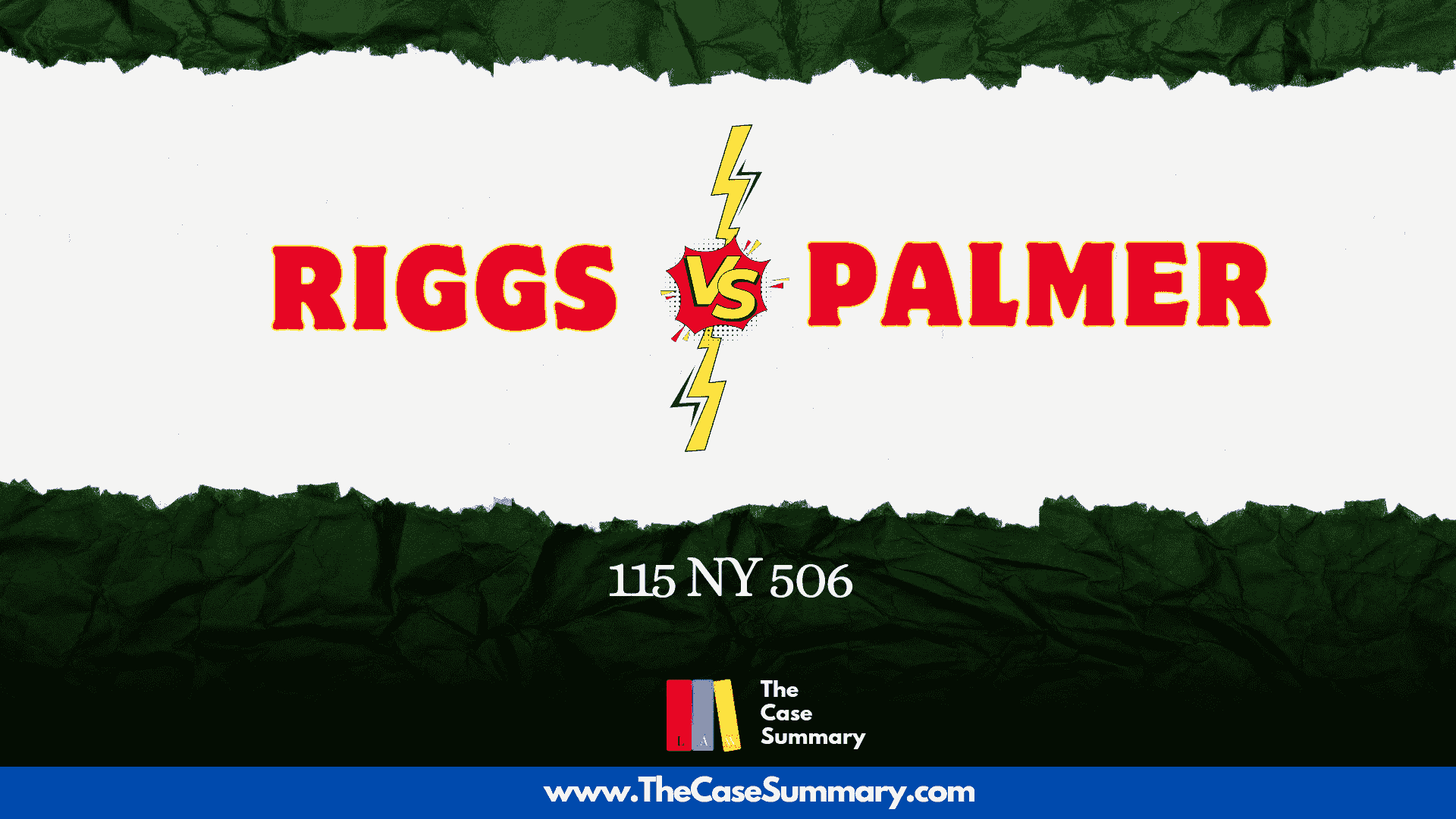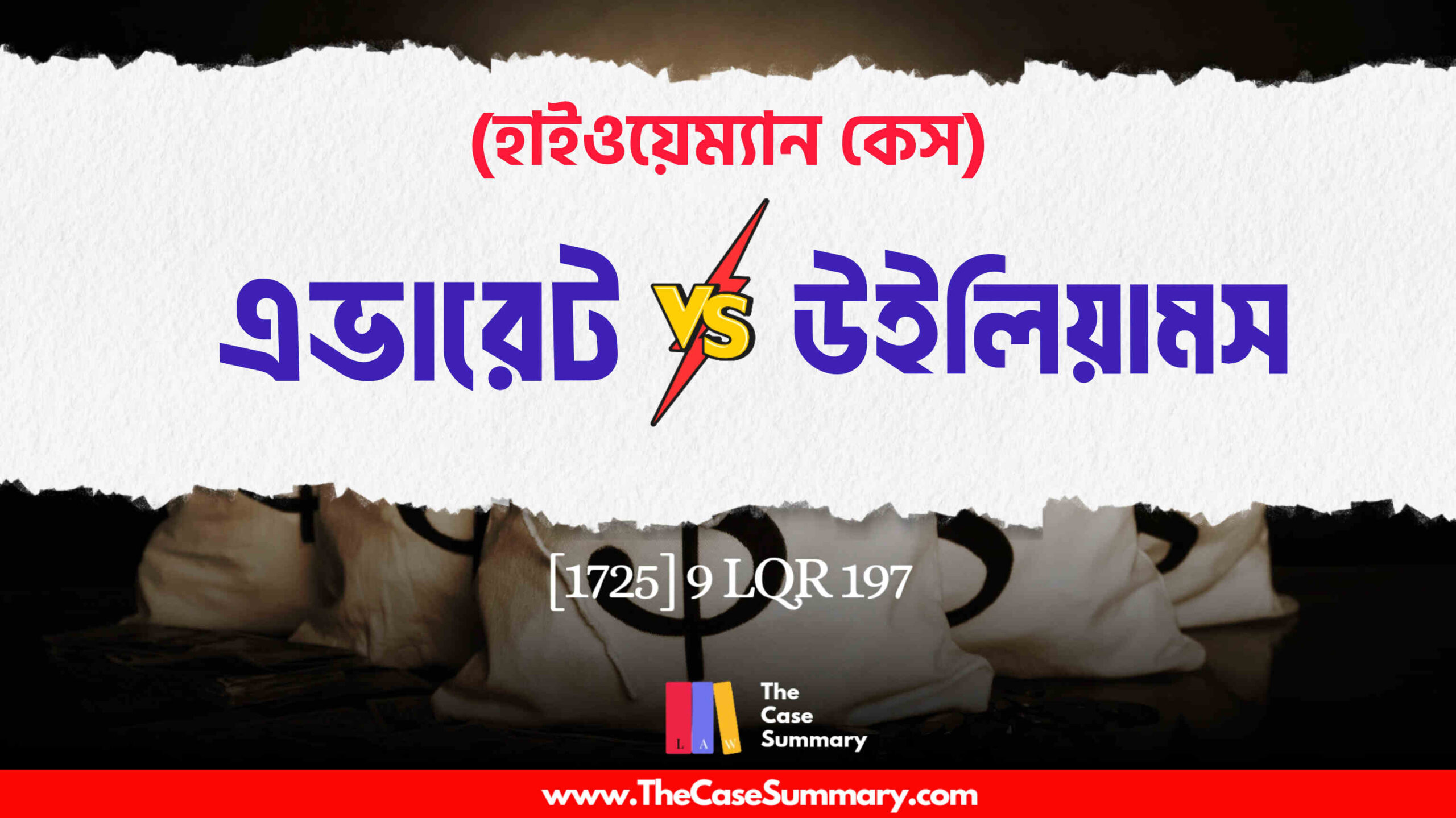Philo Riggs vs Elmer E. Palmer
Reference : 115 NY 506
Jurisdiction : United States of America
Appellant : Philo Riggs
Respondent : Elmer E. Palmer
Facts :
Victim Francis B. Palmer made a will on 13 August 1880. In that will, he left small amounts of his property to his two daughters, Mrs. Riggs and Mrs. Preston. The rest of his property was left to his grandson, Elmer E. Palmer (Respondent). If Elmer died young, unmarried, and without children, the property would be inherited by the two daughters.
Francis B. Palmer was a widower. However, in March 1882, he remarried Mrs. Bresee and signed a contract with her, stating that if she outlived him, she would have the right to live on his farm for the rest of her life. Elmer knew about the will and the inheritance. He feared that his grandfather might change his mind and revoke the will made in his favour. To obtain the speedy enjoyment and immediate possession of the property, he willfully murdered his grandfather by poisoning him. After the murder, he claimed the property based on the will.
Issues :
1. Can Elmer inherit the property from the will despite being the murderer of the testator?
Decisions :
When the case reached the Appellate Court, two contrasting opinions emerged.
Judge Robert Earl, delivering the majority opinion, emphasized the fundamental principle of the public policy embodied in the maxim “ex turpi causa non oritur action”, which means that no one should be allowed to benefit from their own wrongdoing. He argued that allowing Elmer Palmer, who had intentionally murdered his grandfather, to inherit the property would contravene basic principles of justice. Judge Earl further observed that, while the statutes governing wills and inheritance did not explicitly address situations where a beneficiary commits murder, the court must interpret such statutes rationally to avoid absurd or unjust outcomes. He contended that this approach might necessitate looking beyond the literal text of the law, emphasizing that the purpose of the law is to ensure justice and that judicial interpretation should uphold this objective.
In dissent, Judge John Clinton Gray advocated for a strict interpretation of the written law. He contended that existing statutes prescribed specific punishments for murder but did not include provisions to deny inheritance in such cases. According to Judge Gray, denying Elmer the estate amounted to imposing an additional punishment not authorized by law. He further asserted that it was beyond the court’s authority to create new legal consequences based on moral reasoning, as such matters were within the exclusive domain of the legislature.
Finally, the majority decision barred Elmer Palmer from inheriting his grandfather’s estate, establishing a precedent that courts can invoke equitable principles to prevent unjust and immoral outcomes, even in the absence of explicit statutory provisions.
Relevant Maxim :
1. Ex turpi causa non oritur actio : This Latin legal maxim means no one should be permitted to benefit from their own wrongdoing. It signifies that a court will not assist a claimant who relies on an illegal or immoral act to establish their case.
In this case, the Court applied this principle to exclude the defendant, Elmer, from inheriting the property he sought to acquire by killing his grandfather.
2. He Who Comes To Equity Must Come With Clean Hand : This maxim means that anyone who seeking help from a court of equity must act honestly, fairly, and in good faith. He should not have engaged in any unethical, dishonest, or illegal behaviour related to the matter. This is one of the basic principles of the law of equity.
In this case, the Court rejected the defendant’s argument because he acted wrongfully and then sought a remedy. Since he was already involved in a wrongful activity, the Court did not provide him any relief.
Author :
1. Md. Atikur Rahman
Note : The Case Summary is a platform by the law students, for the law students. We aim to summarize the facts and decisions of various important cases in both Bangla and English with utmost caution. However, this platform is in no way a replacement for going through the complete judgements by the law students and we discourage any learner from relying on case summaries alone. Thank you



